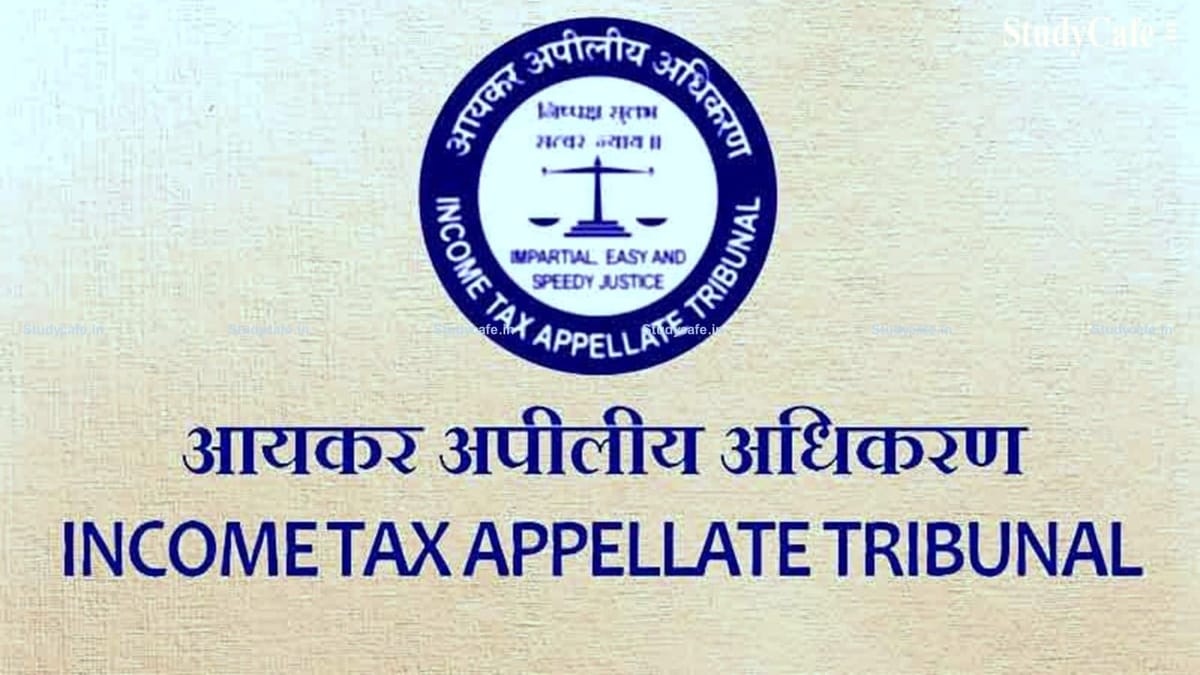State Authorities, Regulatory Bodies Including Direct & Indirect Tax Departments are Barred from Challenging Resolution Plan: ITAT Dismisses Revenue Department’s Appeal
Nilisha | Mar 25, 2022 |

State Authorities, Regulatory Bodies Including Direct & Indirect Tax Departments are Barred from Challenging Resolution Plan: ITAT Dismisses Revenue Department’s Appeal
The revenue department’s appeal was dismissed by the Mumbai Bench of the Income Tax Appellate Tribunal (ITAT) on the grounds that state authorities and regulatory organisations, including direct and indirect tax departments, are not permitted to examine the resolution plan.
According to section 31 of the Insolvency and Bankruptcy Code, 2016, the resolution plan approved by the Adjudicating Authority is binding on the corporate debtor and its employees, members, creditors, guarantors, and other stakeholders involved in the resolution plan, according to the two-member bench of Sandeep Singh Karhail (Judicial Member) and Prashant Maharishi (Accountant Member).
In accordance with the Insolvency and Bankruptcy Code, 2016, the assessee/case appellant’s was pending before the Insolvency Professional. According to section 14 of the Insolvency and Bankruptcy Code of 2016, a moratorium period has been declared.
Capman Conpro Pvt. Ltd. And Vighnahartha Corrugators Pvt. Ltd. Filed the petition before the National Company Law Tribunal (NCLT) in their capacity as Financial Creditors of Global Softech Ltd. (Corporate Debtor) under Section 7 of the Insolvency and Bankruptcy Code, 2016 read with Rule 4 of the Insolvency and Bankruptcy (Application to Adjudicating Authority) Rules, 2016.
Hemant Sharma was designated as the Interim Resolution Professional by the NCLT to conduct the CIRP and to exercise all powers and perform all responsibilities as required by the Insolvency and Bankruptcy Code, 2016.
The court noted that during the moratorium period, the institution of suits or continuation of pending suits or proceedings against the corporate debtor, including execution of any judgement, decree, or order in any court of law, tribunal, arbitration panel, or other authority, is prohibited under section 14 of the Insolvency and Bankruptcy Code, 2016. The moratorium will be in effect from the date of the order until the corporate bankruptcy resolution process is completed.
The court noted that the department’s appeal amounted to the filing of a lawsuit against the corporate debtor, which is banned under section 14 of the Insolvency and Bankruptcy Code, 2016.
In the case of Alchemist Asset Reconstruction Co. Ltd. V. Hotel Gaudavan (P.) Ltd., the Supreme Court held that even arbitration proceedings cannot be started after the moratorium imposed under section 14 (1) (a) of the Insolvency and Bankruptcy Code, 2016 has taken effect, as it is non-est in law and could not be allowed to continue.
The Revenue’s appeal was dismissed by the Tribunal, but the Assessing Officer was given the option to re-file the appeal after the moratorium period expired, upon the revival of the Corporate Debtor as per the Adjudicating Authority’s approved Resolution Plan or upon the appointment of the Liquidator, as the case may be.
To Read Judgment Download PDF Given Below:
In case of any Doubt regarding Membership you can mail us at [email protected]
Join Studycafe's WhatsApp Group or Telegram Channel for Latest Updates on Government Job, Sarkari Naukri, Private Jobs, Income Tax, GST, Companies Act, Judgements and CA, CS, ICWA, and MUCH MORE!"